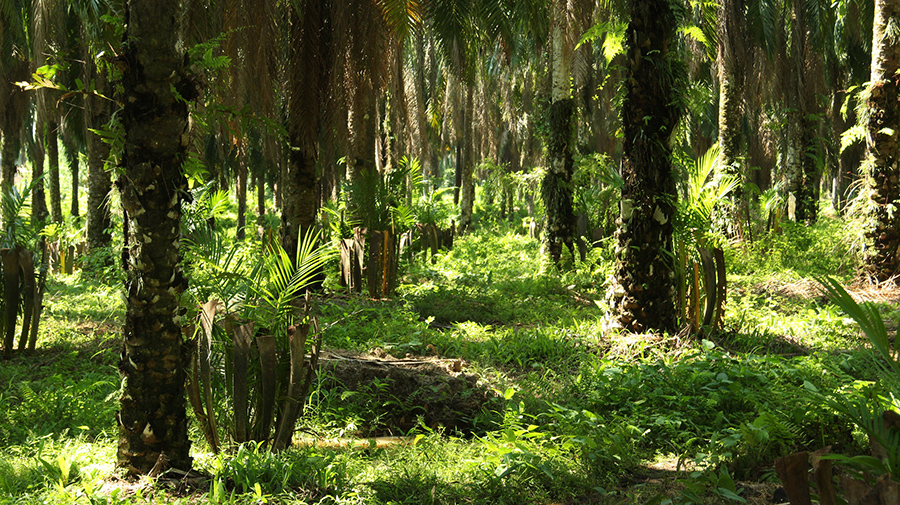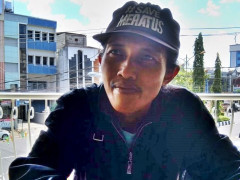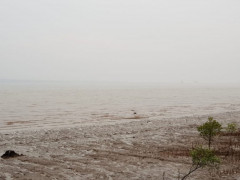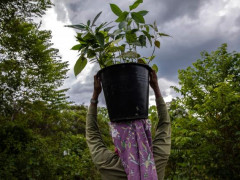South Kalimantan and the Unclear Fate of the Palm Oil Moratorium
By Kisworo Dwi CahyonoEnduring Pressure from Landlords and Oil Palm Plantations in Lebak Lebung

Initially, the auction system was people-oriented. IDR 300–400 thousand was collected from each farmer in exchange for the right to use a plot of land for one year. Over time, the government has raised the bidding price to rent land in Lebak Lebung, so the auction winner is usually a landlord with significant capital.
About the authors: Siti Chaakimah and Muki WIcaksono are socioeconomic researchers at Epistema Institute. They can be reached by email at [email protected] and [email protected].
Lebak Lebung is a tidal marsh and peatland area in the Ogan Komering Ilir (OKI) district of South Sumatra, where locals cultivate rice and fish. The inner part of Lebak Lebung has peat and various tree species; fish can be caught here during the high tide. In the past, Lebak Lebung land was managed communally; anyone could enjoy the benefits of the land and the harvest, so long as it did not harm the community. Unfortunately, this open system has since been replaced with an auction system run by landlords due to high rental costs in the marsh area that the OKI local government manages.
The Auction System of Lebak Lebung
The OKI community, particularly the people of Rena, are accustomed to obtaining land management rights through the auction system. Initially, the auction system was people-oriented; IDR 300–400 thousand was collected from each farmer in exchange for the right to use a plot of land for one year. The cost to each farmer was determined by dividing the total auction costs equally among all farmers.
Today, that auction system is no longer applied.
Over time, the government has raised the bidding price to rent land in Lebak Lebung. The sub-district and village-level governments serve as the auction committee, and they can recommend that the district government issues a management permit for the Lebak Lebung area to the auction winner according to OKI Local Regulation No. 18/2010. Their recommendation also includes the standard bidding price set by the sub-district committee. Residents of Belanti village say that the sub-district and village governments could set the bidding price anywhere from IDR 50–200 million per year.
Local Regulation No. 18/2010 states that bidders who cannot pay promptly in cash will be fined an additional 10% of the bidding offer or sentenced to a maximum of three-months imprisonment. This clause undermines the community’s ability to lease land due to the high risk of the auction.
These days, the auction winner is generally a landlord with significant capital. After winning the auction, he then rents the land to the farmers, who pay rent in installments of grain throughout the year. One farmer in Lebak Lebung reported that rental cost could be as much as 200 cans (2 tons at 10 kilograms per can) for an area of 12 linings equivalent to one hectare (1 lining = 1,111 m2) per year. Community members fishing in marsh areas must also sell their catch to the auction winner for lower than market rates.
A Vulnerable Peat Ecosystem for the People of Rena'
In addition to losing control of the land to the Lebak Lebung auction winner, oil palm plantations and the canal blocks they construct cause further harm to the environment and local residents. In 2009, the government issued a land cultivation permit to PT Waringin Agro Jaya (WAJ) around Belanti village, which is now managed by PT Gading Cempaka.
Ever since the plantation opened, farmers living and working near the concession area have felt its negative impacts on the land, especially for rice farming and fishing.
The farmers have not been able to harvest optimally, because the fields are constantly flooded by overflow from the plantation canals. The fishing sector has also felt the impact. Canalization on the plantation has disrupted the tidal cycle of the surrounding marshes and peatlands.
In past dry seasons, when Lebak Lebung’s peatlands and paddy fields started to dry out, many kinds of fish would lay eggs here. Now, the fish can no longer breed in this area because it is always flooded. The farmers are finding it increasingly difficult to fish as the fish population declines. Despite this and its limited earning potential, many rice farmers still rely on fishing as their primary livelihood.
Pressure from landlords and oil palm plantations makes it more difficult for the people of Rena to earn income from peat ecosystem resources. Attention from the district and provincial governments is necessary to overcome the unequal and unsustainable tenure situation in the Lebak Lebung peat ecosystem.



